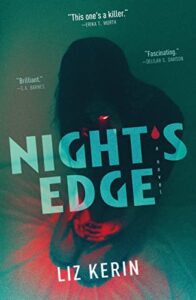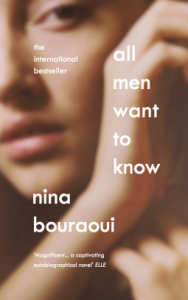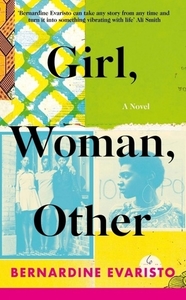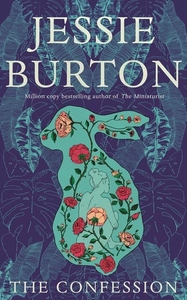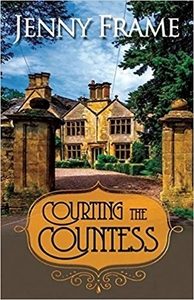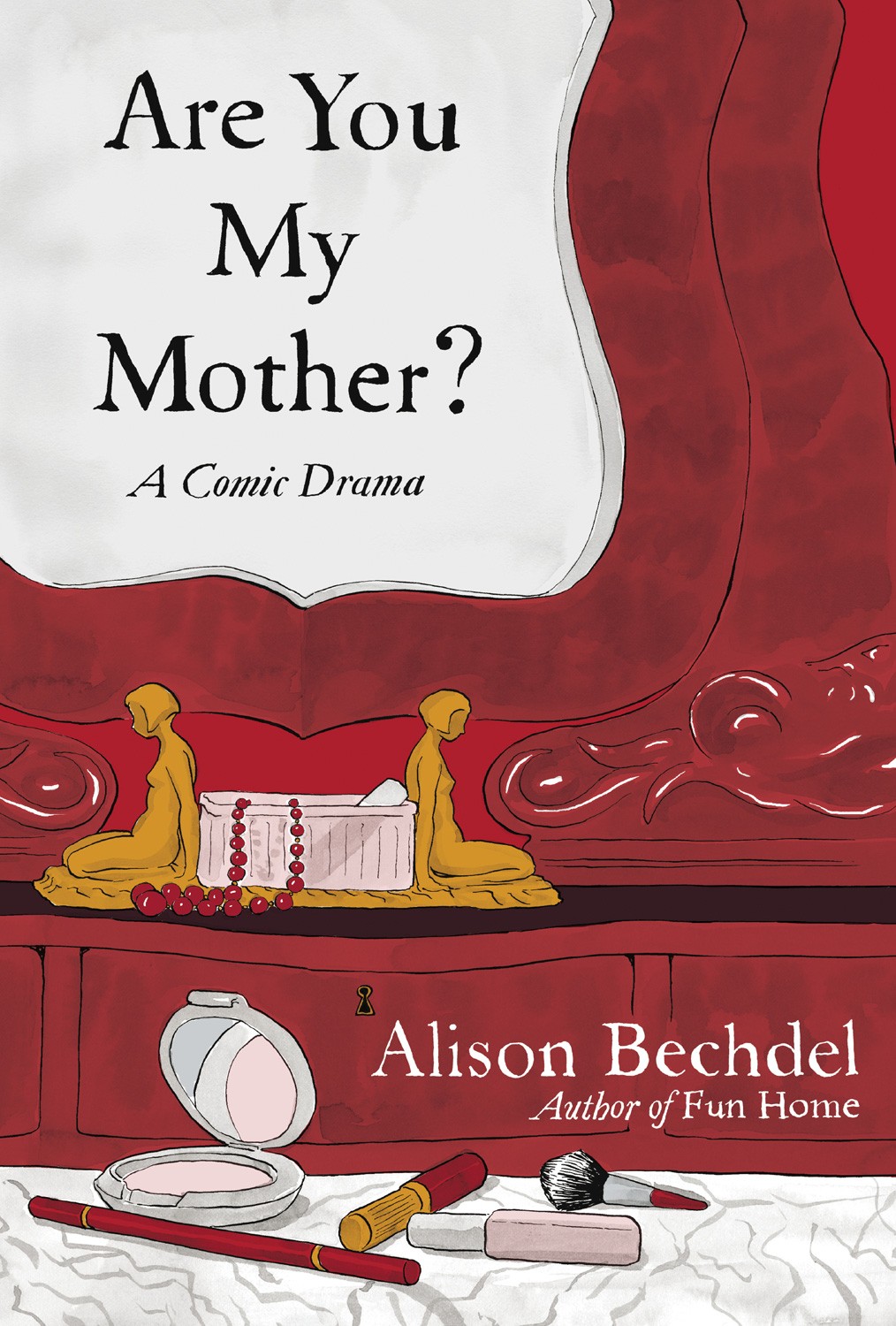Buy this from Bookshop.org to support local bookstores and the Lesbrary!
Night’s Edge by Liz Kerin isn’t your ordinary vampire book. In this world, vampires are known as Saras: people who are infected with Saratov Syndrome, a brutal pandemic that changes how society functions. You can’t get into a place without first pricking your finger on a scanner meant to identify anyone who is a Sara, and if you go out on your own at night, you’re taking your life into your own hands. Mia is a young woman in her twenties whose mother was turned into a Sara when Mia was a kid, and we follow her as she navigates the codependent, abusive relationship she has with her mother throughout the years.
The best thing going for this book is the world. I was instantly enamored with the concept the moment I started reading, and when things lagged, I stayed because of how interesting I found the Saras. Mia is her mother’s bloodletter. They have a daily ritual: Mia draws her own blood and pours it into her mother’s cup, and that is how her mother gets by without murdering other humans in front of Mia. Treating Saratov Syndrome—treating vampirism—like a pandemic is an inspired idea. I could see the bones of the Covid-19 pandemic shaping the story through curfews, isolation protocols, and an emphasis on people leaving the house at their own risk. As a healthcare worker, this resonated with me and gave the story meaning that I hadn’t expected to find. It’s also such a fresh take on vampires. Saratov Syndrome is probably one of my favorite depictions of vampirism. It’s a disease with no cure. It produces both Saras and people bent on killing them in the name of self-defense. Caffeine, alcohol, and rusted metal become known deterrents to Saras, and you see how the world is changed from our reality in order to make room for that.
The relationship between Mia and her mother is also a high point for Night’s Edge. The book oscillates between present Mia and past Mia, showing us their fraught relationship beginning with her mother’s death/subsequent Sara-turning through where they are now after more than a decade. This is the strongest relationship in the entire book. There’s a love interest, of course—her name is Jade, and she’s everything Mia is not. However, I found myself more intrigued by whatever was going on between Mia and her mom. Throughout the book, you have to watch as Mia slowly figures out that her mother is an abuser, and it hurts when a promise her mother made in the past is broken the next time we switch to the present. When her mother first becomes a Sara, you see her try to avoid hurting Mia for a while, but that soft edge is gone from her in the present. The mother she had before is not the mother she has now. Mia’s life is shaped completely around not exposing her mother’s secret and always being there for her every need or whim. She thinks that she has to spend all of her time protecting her mother from a world that doesn’t understand her the way Mia does. She’s never dated anyone. She doesn’t do anything with her life. She works morning shifts at a bookshop, and she attends to her mom every other moment. This is it. This is Mia.
Then she meets Jade at the coffee shop next door, and her life slowly begins to change. Mia feels an instant spark of connection with Jade. Jade is nice, bright, and seems to feel that same spark for Mia. Their relationship takes shape quickly. Suddenly, Mia is seeing a world outside of her mother’s control. You would think, then, that their relationship would be really interesting. However, Jade is a cardboard cutout of a person. That sounds harsh, I know. She’s supposed to be a stark opposite to Mia, a fun-loving, colorful-eyeliner-wearing, rocker chick who shows Mia what life could be like if she got out from under her mother’s thumb. But that’s all she is. There are no moments of growth for her, no character development, nothing. Jade is the same person at the end of the novel that she is at the beginning of it. While Mia starts to seriously consider and make an effort to leave her mother behind and go with Jade across the country, Jade is just kind of there, an escape plan, a plot device to move Mia’s story forward. Anytime the two interacted, I found myself wishing that Jade would give me something more to hold onto. I wanted Mia to see Jade and figure out what her life could be herself, without Jade telling her what she could do and where she could go. (Spoilers follow) Jade offers to let Mia come with her when she leaves to go on her next adventure, and Mia agrees, following someone else’s plan for her life again. Mia eventually choosing not to go with her is one of the few times Mia makes a decision for herself, and I saw her growing as a character when she did that. She doesn’t make a lot of her own choices, so I cheered for her whenever she did.
All in all, this was an okay read. The end of the story is a bit of a letdown to me (Mia fails to make a decision, and something happens anyway), but other readers might not see it as such. If you want a refreshing take on vampires and codependency, give this a shot! Trigger warnings for: child abuse, blood, death, violence/injury (including domestic violence), and a scene involving active shooters at a musical event.

